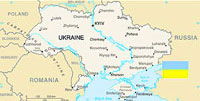Russian Defense Ministry denies rumors about concentration of troops on Ukrainian border

MOSCOW. March 23 (Interfax) – Russia has no plans to concentrate its troops on the Ukrainian border, Russian Deputy Defense Minister Anatoly Antonov said.
“The Russian Defense Ministry observes all international agreements on the restriction of the number of troops in the areas bordering on Ukraine,” Antonov said on Sunday, commenting on the reports published in some foreign media on the concentration of “thousands” of Russian troops on the Russian-Ukrainian border.
“By the way, this issue was raised many times in the course of the past month in telephone conversations between Russian Defense Minister General Sergei Shoigu and his foreign colleagues, including [U.S.] Defense Secretary Chuck Hagel and even acting Ukrainian defense minister Tenyukh,” he said.
“Sergei Shoigu has very clearly told everyone about the real situation on the Russian-Ukrainian border and the lack of any intentions to concentrate troops there,” he said.
“Europe has an objective criterion for evaluating a country’s military activities. It’s a regime of transparency and confidence-building measures in the sphere of conventional weapons, which is based on the Open Skies Treaty and the 2011 on Confidence- and Security-Building Measures,” Antonov said.
“A set of measures allowing countries to get true information on each other’s armed forces using inspections was developed and is being implemented as part of this regime. There are restrictions on their activiti es, which may influence the neighbors’ security. If the established thresholds are exceeded, the countries have a duty to declare their intentions and, in some case, invite observers,” he said.
“We strictly observe our obligations on these agreements,” Antonov said.
Eight groups of inspectors visited Russia in the past month, he said. “Our objects and areas of deployment were inspected by the Ukrainian military twice. Besides, inspectors from the U.S., Canada, Germany, France, Switzerland, Poland, Latvia, Estonia, and Finland have visited our country. ‘By accident,’ most of them (seven missions) were interested in the regions adjacent to the Ukrainian border,” he said.
“We have done everything to meet our partners halfway by allowing them to analyze all objects they were interested in. We have nothing to hide there,” Antonov said.
“The foreign missions were able to meet with the command of the Russian units and divisions, photograph places of deployment of the personnel and military equipment, and monitor their routes. The conclusions that our foreign partners made at final briefings, which are a compulsory procedure, were that the Russian Armed Forces are not conducting any undeclared military activities that cold threaten the security of the neighboring states,” Antonov said.
“For this reason, Sergei Shoigu called on the U.S. defense secretary to objectively evaluate the state of the military activities of the Russian Armed Forces in the regions adjacent to the Ukrainian border and not fuel tensions,” he said.
“We are hoping that our Ukrainian and Western European partners will communicate the information on the real state of the Russian Armed Forces in the Western region to the political administration of their countries. We think that would help relieve the tensions, for which U.S. Secretary of Defense Chuck Hagel said in a recent conversation with General Sergei Shoigu,” he said.
